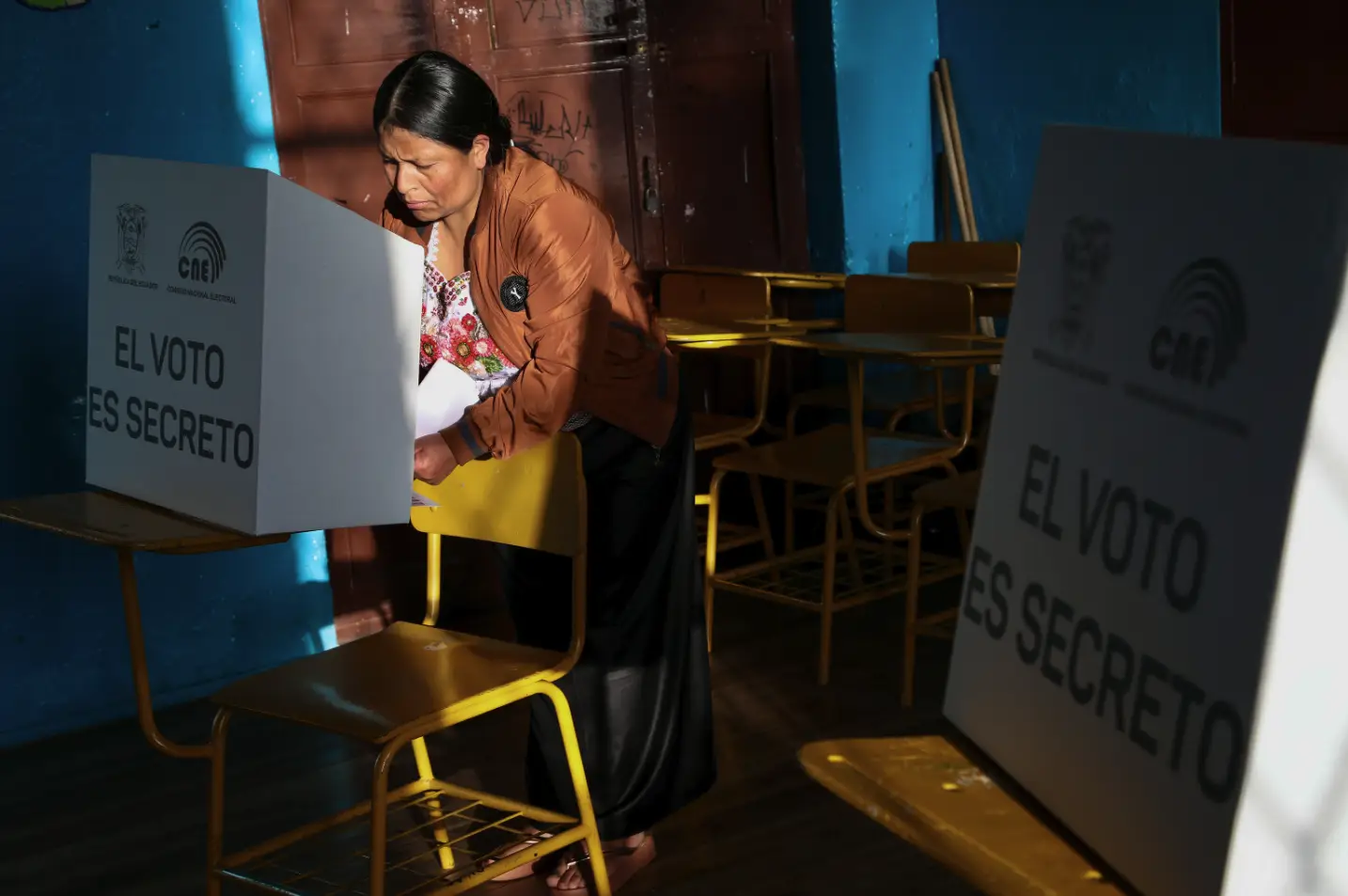On April 13, two political models will face off in Ecuador: the one known as the “Won Decade” (2007–2017), represented by Luisa González, and the one of the quasi “Lost Decade” (2017–2024), represented by Daniel Noboa and those who preceded him in holding the presidency of the Republic during that time.
The government of former President Rafael Correa, between 2007 and 2017, modernized Ecuador and elevated all its development indicators to historic highs. Some examples include the country’s education indicators, achievements in healthcare, developed infrastructure, national security levels, genuine judicial independence, and the defense of citizens’ rights. That government also enacted one of the world’s most progressive constitutions, granting rights to Mother Nature and the concept of “Buen Vivir” (Good Living).
However, between 2017 and 2024, the country experienced an unprecedented level of destruction in the region, terrifying in its impact on the most vulnerable and the general population.
The Decline
Since 2017, not only was the legacy of the previous decade squandered, but there was also a true decay of consolidated democratic values and the deployment of a fratricidal persecution. The arrival of Lenín Moreno to the presidency marked a clear regression to times that had already been left behind in the country.
Moreno’s sole obsession was to prevent Rafael Correa from returning to power in Ecuador. To this end, an entire institutional architecture was created to open endless, baseless legal cases designed to suffocate that political movement and its leaders or representatives—mainly Rafael Correa and Jorge Glas, but also others such as Paola Pabón, Virgilio Hernández, or Indigenous leaders like Leonidas Iza, among others. This persecution scheme continued during Guillermo Lasso’s presidency and up to the present under Daniel Noboa.
Persecution Plan
In 2018, with Lenín Moreno in power, a questionable referendum and popular consultation led to the creation of a “Transitional” Council for Citizen Participation and Social Control. Julio César Trujillo was placed at its helm and frequently appeared in the media, declaring that his goal was to eradicate “correísmo,” sending all those linked to the previous administration to prison.
The Transitional Council arbitrarily removed and appointed numerous authorities, including within the judiciary, by naming temporary judges. Among those appointments, a standout was the naming of Diana Salazar as Attorney General, a designation made despite undeniable evidence that she did not come close to achieving the highest evaluation scores. Nevertheless, Ms. Diana Salazar has been and remains the key figure in every single process opened against these leaders. Pure lawfare has taken hold in Ecuador, from the highest echelons of justice and politics down to the lowest levels, to the detriment of the citizenry.
The dynamic of this brutal persecution has always been the same. A media outlet would publish an unfounded accusatory report. Prosecutor Diana Salazar would then open an investigation. And the judiciary, appointed by the Transitional Council, would proceed to convict in every case, with total disregard for procedural truth.
Architecture of Persecution
Against this persecution architecture stood none other than the UN Special Rapporteur on the Independence of Judges and Lawyers, Diego García Sayán, who sent repeated and forceful urgent appeals to Ecuador warning that the executive was colonizing the judiciary, fearing the establishment of a judicial persecution structure against the opposition.
There were many political persecution cases, but among them, the most notable is the so-called Bribes Case (2012–2016), which resulted in the conviction of several figures of the Citizen Revolution, including former President Rafael Correa and former Vice President Jorge Glas. With this fast-tracked sentence, Correa was barred from running in elections, and the Citizen Revolution was illegally decapitated. The conviction was based on the testimony of two individuals who reached deals with the prosecution and refused to answer defense questions, and on an accounting notebook with false entries, manipulated dates, and no graphochemical analysis. Surprisingly, the ruling justified itself—for the first time in the history of criminal law—on the basis that Rafael Correa and Jorge Glas exerted “psychic influence” over others to induce them to commit crimes. As absurd as it sounds, this is a fact.
Once again, the UN Special Rapporteur intervened, issuing new urgent appeals to Ecuador regarding this case. Like the previous ones, they were ignored.
The result of that ruling was the issuance of international arrest warrants against Rafael Correa and others. INTERPOL rejected them, considering they were politically motivated. In fact, members of the Citizen Revolution who are outside Ecuador have been granted asylum in countries like Canada, Belgium, and Mexico, which recognize that they are victims of political persecution.
Arbitrary Judicial Processes
It is crucial that these facts be known, as they reveal the political persecution that has unfolded in Ecuador. In this context, special mention must be made of former Vice President Jorge Glas, who has endured a series of arbitrary legal proceedings without the minimum procedural guarantees owed to every citizen.
The gravest aspect of this case was the violation of diplomatic asylum granted by Mexico: President Daniel Noboa ordered the illegal entry of Ecuadorian police into the Mexican embassy in Quito, breaching its immunity and violently kidnapping the former Vice President, who was then sent to a maximum-security prison. There, he has faced inhumane conditions, attempted suicide, and his life is in danger. The Inter-American Commission on Human Rights expanded protective measures this year, requesting his transfer to a hospital and removal from “La Roca” prison, but the Ecuadorian government has refused to comply.
This contempt for domestic and international law is characteristic of rulers unworthy of representing Ecuadorian citizens. Ecuador is now a country facing a terrible energy crisis, with constant and repeated blackouts. A dire security crisis has made it one of the most dangerous countries in the region. A worsening humanitarian crisis is clearly illustrated by the disappearance and murder of children in Guayaquil. And an unprecedented constitutional crisis has emerged, allowing Daniel Noboa to be both a presidential candidate and sitting president, while preventing Vice President Verónica Abad from assuming the presidency, as mandated by law.
Ultimately, on April 13, two models face off: that of Daniel Noboa, son of the banana oligarchy who has left a country in ruins, and that of the Citizen Revolution, through candidate Luisa González, who seeks to rescue Ecuador from the enormous structural crisis into which irresponsible and unscrupulous politicians have plunged the Ecuadorian people.
This is the time of hope.
*Machine translation proofread by Janaína da Silva.












